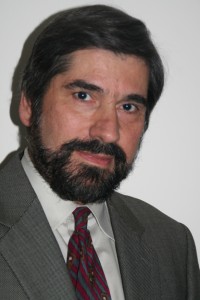Cassandras, Han Win Faculty Awards

通过
Distinguished Scholar Award
The Distinguished Scholar Award recognizes Cassandras as “one of the pioneers of an emerging field, discrete event dynamical systems, that is used extensively in the modeling, analysis and design of dynamical systems in diverse applications such as manufacturing systems, communications, transportation networks and cyber-physical systems,” said Electrical and Computer Engineering Chair and Professor David Castañón.
“我
Cassandras’s numerous awards include a 2012 Kern Fellowship, a 2011 prize for the IBM/IEEE Smarter Planet Challenge competition, the 2011 IEEE Control Systems Technology Award, the Distinguished Member Award of the IEEE Control Systems Society (2006), the 1999 Harold Chestnut Prize (International Federation of Automatic Control (IFAC) Best Control Engineering Textbook) for Discrete Event Systems: Modeling and Performance Analysis, and a 1991 Lilly Fellowship. He is also a Fellow of the IEEE and IFAC.
Early Career Research Excellence Award

A member of the BU faculty since 2010, Han develops and applies high-precision genetic, molecular, optical and electrical tools and other nanotechnologies to study neural circuits in the brain. By using these novel neurotechnologies to control and monitor a selected population of brain cells, she and her research team seek to identify connections between neural circuit dynamics and behavioral pathologies. Establishing such connections could improve our understanding of neurological and psychiatric diseases, and lead to new treatments.
In recognition of her innovative research on developing novel neurotechnologies using light sensitive nanoparticles to sense neurons’ cellular environment and to deliver drugs directly to the brain, Han was named by President Obama in January as one of 102 recipients of the Presidential Early Career Award for Scientists and Engineers, the highest honor bestowed by the US government on science and engineering researchers in the early stages of their careers. Han has also received a National Institutes of Health (NIH) Director’s New Innovator Award and recognition as a Pew Scholar in the Biomedical Sciences, Sloan Research Fellow and Peter Paul Fellow.
“We are delighted that the College of Engineering has chosen to celebrate Xue’s remarkable achievements with this award, and I can think of no one more deserving,” said Professor Sol Eisenberg, who heads the BME Department.